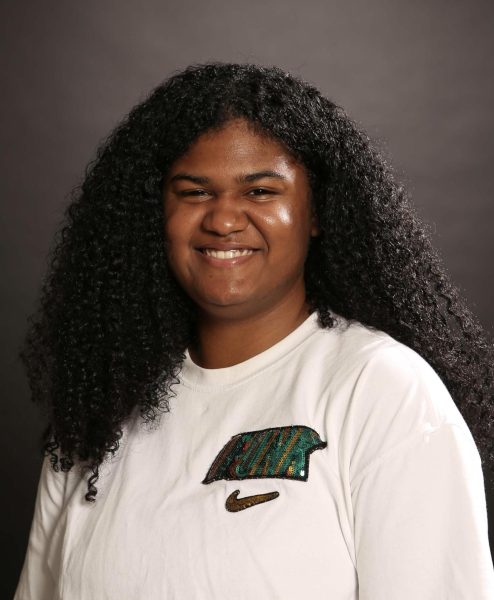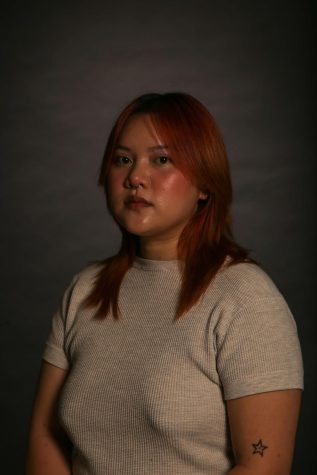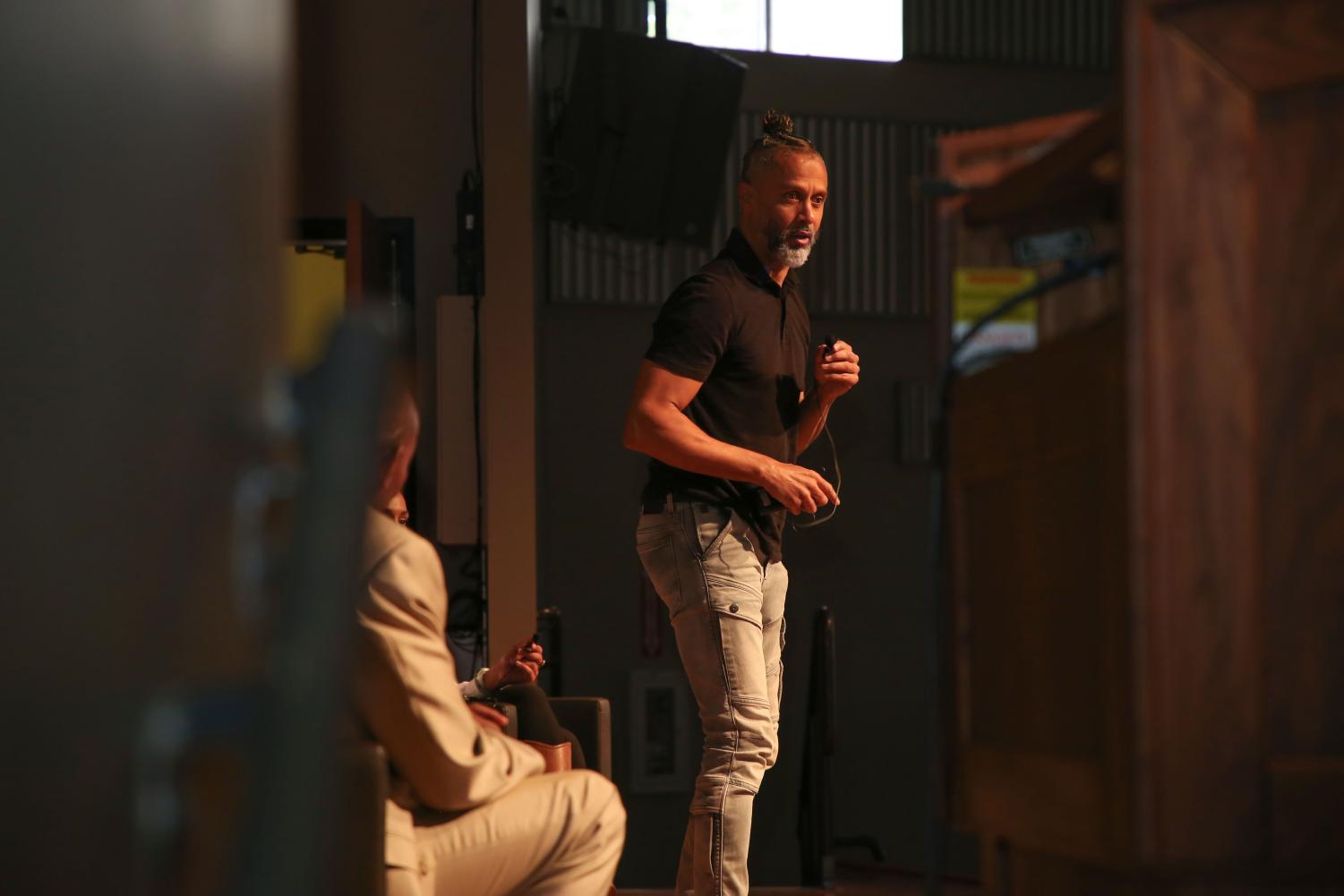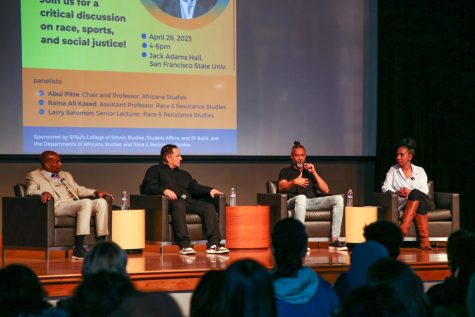



The panel held on April 26 touched on themes such as race, sports and social justice in front of an audience of roughly 200.
Apr 29, 2023
Just over 200 people filled the seats in Jack Adams Hall, leaving only standing room. SF State students, faculty, administrators and the general public listened to Mahmoud Abdul-Rauf share his journey about how basketball and religion shaped his beliefs in social justice.
The panel discussion was based on the recent documentary on Abdul-Rauf’s life journey called “STAND.” The documentary captures how he overcame adversity on and off the NBA court.
While in the NBA, Abdul-Rauf converted to Islam, hence his name change from Chris Jackson to Mahmoud Abdul-Rauf. His conversion also led to a refusal to stand for the national anthem before games, which caused him to be ousted from the league after nine seasons in the NBA.
A clip of the “STAND” documentary was shown during the panel and Abdul-Rauf states in it that his decision to not stand for the national anthem started from the books he was reading about American exceptionalism and American innocence.

“You had Rodney King, you had the bombing of the World Trade Center, you had the Gulf War, over 90% of its existence from the inception of this country they’ve been at war,” Abdul-Rauf said in the documentary. “I’m coming across information now that I’m really offended [by]. I feel like I’ve been cheated, I feel like the educational institutions cheated me.”
Abdul-Rauf sees the American flag as a symbol of oppression and tyranny, and the morals and values he embraces as a Muslim do not support what the flag symbolizes.
Dale Brown was Abdul-Rauf’s coach when he attended Louisiana State University. Abdul-Rauf said he believes Coach Brown was planting the seed in terms of his activism.
“When we’re on the plane or the bus, he [was] reading profusely. He [was] constantly reading and constantly passing information, even if it [was] a sentence, he [was] always giving you stuff to think about,” said Abdul-Rauf during the discussion.
When Brown gave Abdul-Rauf the autobiography of Malcolm X his sophomore year, Abdul-Rauf said he saw a lot of himself.
“My curiosity grew about so many things. I began to take little steps, telling people “no” and sitting with what that discomfort feels like. Taking certain positions, slowly each day,” Abdul-Rauf said.
Jeremiah Franklin, a third-year BECA major, managed the event’s sound system. He said that he had never heard of Abdul-Rauf but was struck by his story.
“Everything he said about the flag and racism struck me as very true, people look at America and think it’s great,” Franklin said. “It was very refreshing to hear that. I want to look into his [religious] beliefs. I agree with what he says but I never connected that to [being] Muslim in any way, so maybe that has some correlation.”
Brianna Smith, a student and faculty leader at City College of San Francisco, was inspired by Abdul-Rauf’s lifelong fight for social justice.
“I was thinking about the idea of persistence and perseverance with continued struggle,” Smith said. “Even two of the people on the panel I know of some of their struggles. Here they are giving themselves to continue to be a part of the resistance, because it’s easy to give up and say ‘I can’t do this anymore.’ It’s really something special, something engrained differently in you when you want to keep speaking up.”
Abdul-Rauf explained how he continues to fight for social justice after everything he has been through.
“I’m always reading and for me the blueprint is the Quran. But also I’m constantly reading those stories about people who were selfless and people who took those risks,” Abdul-Rauf said.
“The more I study and read and come across material by men and women, my heroes and my influencers change, people who began to influence me became thinkers and people who took positions.”
Kimberley Bonilla, a second-year business administration major, believes Abdul-Rauf sharing his story supports the fight for social justice.
“I feel like it’s a matter of sharing and talking more about experiences. It all depends on perspectives, him [Abdul-Rauf] coming out here and talking about his experiences and what he went through. I think it’s important to speak out,” Bonilla said.

